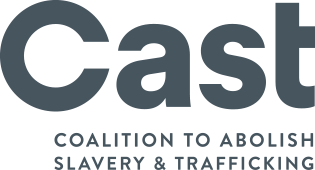Friday, June 8, 2018, was truly a disappointing day in California for survivors of human trafficking, as the final California budget deal excludes any funding for victims of this modern form of slavery to escape and seek the help they need to be safe and healthy. The 10 million dollar one-time request was zeroed out of the budget during Budget Conference Committee deliberations, despite there being a surplus in the California budget this year. Unfortunately, the impact is grave. In years prior, the California Office of Emergency Services (Cal OES) administered this funding via competitive grants that went toward specialized services for human trafficking victims. Now, 21 service providers throughout California who have received funding and provided services to over 6,000 survivors of human trafficking to date (mainly women and children, and many with disabilities) will lose all funding in 2019.
California was the first state in the nation to begin to establish a framework to combat human trafficking — why leadership chose not to continue this support while the programs have shown impact and results over the last three years of funding is unknown. California’s leaders should be taking bold actions to create a stable and supportive system for victims of human trafficking in California, and instead they are failing its victims.
Kay Buck, CEO of CAST, states that she is in “complete shock about the unexpected action that the Committee took in zeroing out all specialized funding for human trafficking” and vows that “CAST will continue the fight to ensure that survivors receive the services they need across the state.”
Deborah Pembrook, an advocate for survivors in Monterey Bay area, National Survivor Network Bureau Chair and a survivor of child sex trafficking, expressed extreme sadness and stated, “I was in my trafficking experience for over 10 years. At the time, there was no comprehensive network of services for survivors. The message was that no one cared about survivors of child sex trafficking. I had hopes that California was taking great steps to ensure that victims had safe havens to turn to and help survivors escape from exploitation.”
Beth Hassett, Executive Director of WEAVE in Sacramento and program funding recipient expressed similar concerns: “Funding from this program has allowed WEAVE to build a robust safety net for victims of sex trafficking in our region. WEAVE has prioritized housing, as it is a key barrier to safety in a community that is experiencing a severe shortage of affordable long-term and accessible emergency housing. Without these funds the safety net will collapse and victims will have nowhere to go.”
Donald Stump, Executive Director of North County Lifeline in San Diego worries that they will no longer be able to respond to urgent needs of human trafficking victims; “This CalOES funding for victims and survivors of human trafficking has helped the San Diego REACH Coalition build a network of support designed to meet the unique, complex and emergency needs of victims of human trafficking. Last year, we served 100 victims by working in close partnership and responding 24 hours a day to the San Diego Human Trafficking Task Force. I am afraid we will no longer be able to provide this critical response.”
Dr. Stephany Powell, Executive Director of Journey Out in Los Angeles states, “for direct service providers of victims of sex trafficking, the decision of the committee is both shocking and disappointing. The need for such specialized services, continues to be critical and has not diminished. Journey Out has carried out this work for over 30 years, any type of funding cut for human trafficking survivors would take away an organizations’ ability to protect the most underserved and vulnerable amongst us in society.”
To learn more about the critical life- saving services these programs provided to over 6000 trafficking victims and for a listing of service providers who will be defunded please reference the CALO-OES statistics factsheet on the Human Trafficking Victims Assistance Programs attached.
